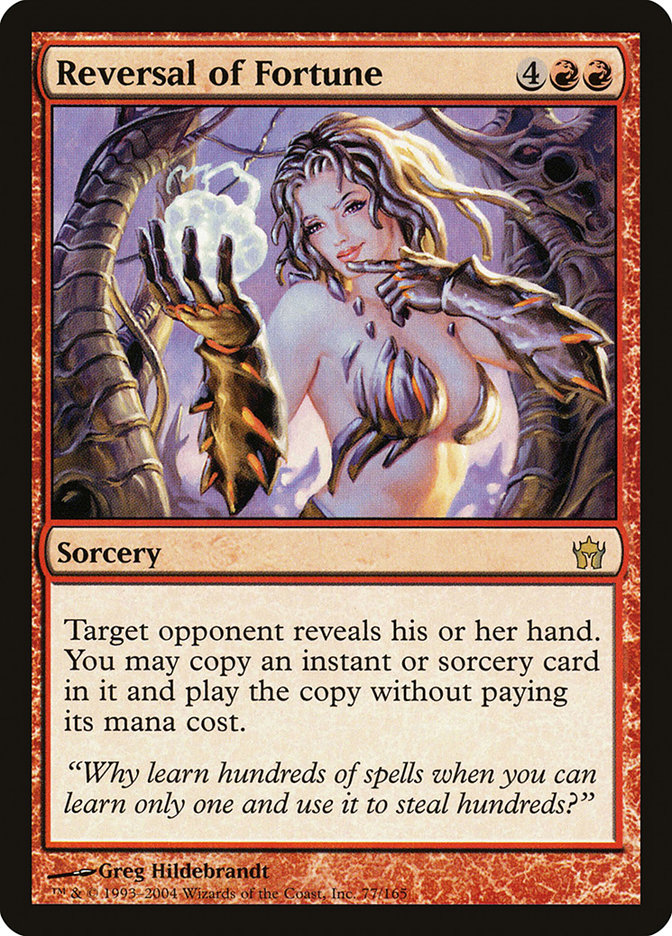
Reversal of Fortune {4}{R}{R}
Sorcery
Target opponent reveals their hand. You may copy an instant or sorcery card in it. If you do, you may cast the copy without paying its mana cost.
“Why learn hundreds of spells when you can learn only one and use it to steal hundreds?”
Illustrated by Greg Hildebrandt
- Standard
- Not Legal
- Alchemy
- Not Legal
- Pioneer
- Not Legal
- Explorer
- Not Legal
- Modern
- Legal
- Historic
- Not Legal
- Legacy
- Legal
- Brawl
- Not Legal
- Vintage
- Legal
- Timeless
- Not Legal
- Commander
- Legal
- Pauper
- Not Legal
- Oathbreaker
- Legal
- Penny
- Legal
Toolbox
Buy This Card
Notes and Rules Information for Reversal of Fortune:
- Reversal of Fortune creates a copy of the card in the other player’s hand, then allows you to cast the copy from that player’s hand without paying its mana cost. (2004-12-01)
- You cast the copy while this ability is resolving and still on the stack. Normally, you’re not allowed to cast spells or activate abilities at this time. Reversal of Fortune provides an exception. (2004-12-01)
- You don’t pay the spell’s mana cost. If the spell has X in its mana cost, X is 0. You do pay any additional costs for that spell. You can’t use any alternative costs. (2004-12-01)
- If the copied card is a split card, you may choose to cast either side of the split card but not both. (2004-12-01)
- You can’t cast the copy if an effect prevents you from casting instants or sorceries, or from casting that particular instant or sorcery. It doesn’t matter whether your opponent can cast the card at this time; the only thing that matters is whether you can cast it. (2004-12-01)
- You can’t cast the copy unless all of its targets, if any, can be chosen. (2004-12-01)
- If you don’t want to cast the copy, you can choose not to; the copy ceases to exist the next time state-based actions are checked. (2004-12-01)
- The spell is cast from your opponent’s hand, not yours, which can be important for some cards. (2004-12-01)
- The creation of the copy and then the casting of the copy are both optional. (2005-03-01)